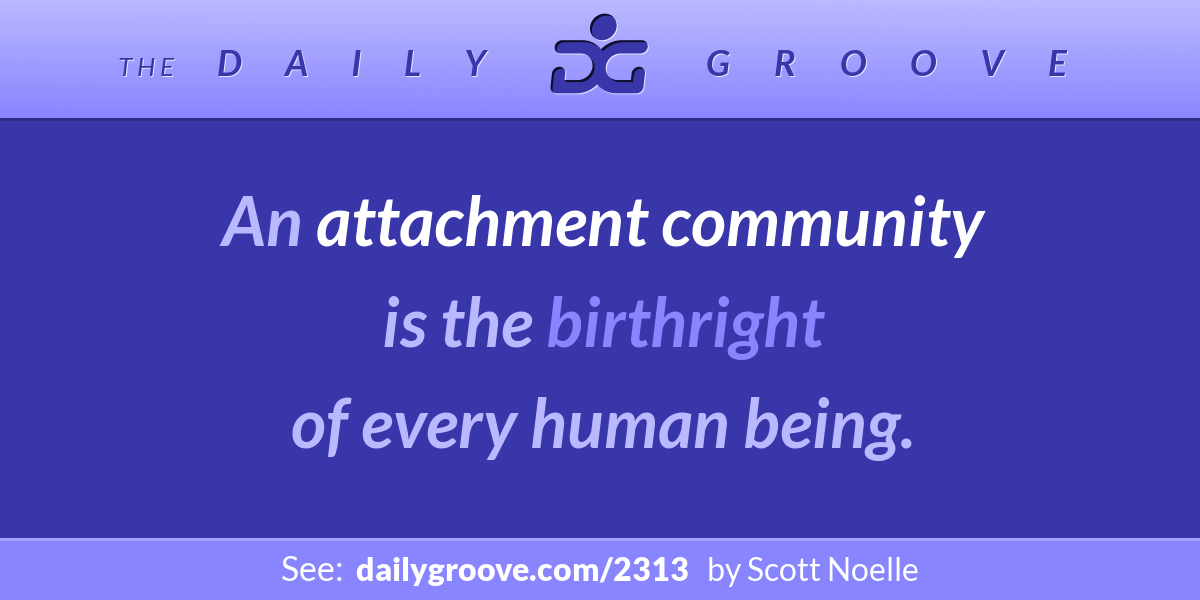What is “Attachment Inequality”?
Here in America, one of the presidential candidates, Bernie Sanders, has been driving home the message that our society’s extreme economic inequality — the top 0.1% having as much wealth as the bottom 90% — is both unjust and unsustainable. In the UK, Jeremy Corbyn is championing a similar message.
But this post is not about politics. This is about the concentration of a different kind of wealth: the richness of connection. The idea came to me while reading yet another great article by Peter Gray...
Read
Like wealth inequality, attachment inequality is both unjust and unsustainable. As attachment is concentrated into an unnaturally small number of relationships, the experience of deep social connectedness, security, harmony, and overall wellness — of children and parents — is severely diminished.
Virtually every modern parent has felt the unnatural burden of being the only person (or at best one of 3 or 4 people) on whom their babies and younger children rely for attachment and nurturing. The absence of the communal attachments and nurturing described in Peter’s article and practiced by our hunter-gatherer ancestors contributes to all sorts of individual and social ills — parental depression, addiction, mass alienation, and rampant consumerism, to name a few.
This is why I always tell my clients who are feeling inadequate as parents that they shouldn’t beat themselves up for failing to compensate, single-handedly, for the lack of the proverbial village it takes to raise a child. There are ways to compensate individually, but these are short-term solutions.
For the long-term, we need a critical mass of people achieving a shift in consciousness, experiencing our connectedness as much as our individuality, and then reclaiming our birthright of attachment communities. That, I believe, would launch a renaissance of social harmony, creativity, and innovative forms of “villages” not yet imagined.
The Daily Groove “Classic”




